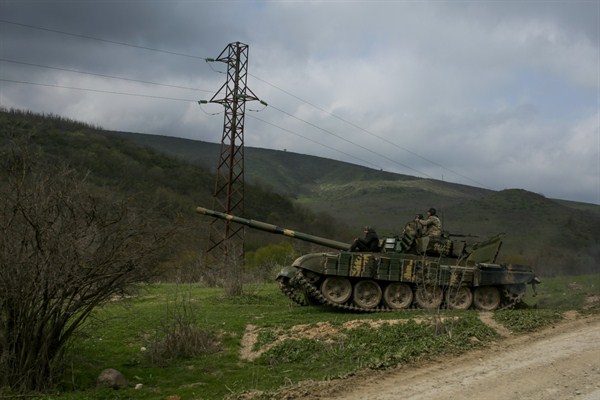The leaders of Armenia and Azerbaijan held a summit meeting in Vienna last month, their fourth face-to-face meeting in six months. The two countries’ foreign ministers have also held several rounds of talks, including a meeting this week in Moscow, heightening expectations for progress on resolving the frozen conflict over the disputed region of Nagorno-Karabakh. But while there have been some tentative signs of progress, the two sides still differ fundamentally on how they view the conflict over the territory, which broke away from Azerbaijan before the collapse of the Soviet Union and has been under de facto Armenian administration since 1994. What agenda items should be prioritized in negotiations remains contentious, says Laurence Broers, an associate fellow in the Russia and Eurasia program at Chatham House. In an interview with WPR, he discusses the recent flurry of diplomatic engagement between Armenia and Azerbaijan and what it might mean for the Nagorno-Karabakh dispute.
World Politics Review: How significant is the stepped-up pace of high-level engagement between Armenia and Azerbaijan, and what impact might it have on negotiations over Nagorno-Karabakh?
Laurence Broers: There has indeed been a revival in terms of the pace and profile of engagement. But this development should be seen in the sobering context of a nearly 15-year arms race, a heavy emphasis on national security by both countries, and, just three years ago, a serious escalation of violence along the so-called Line of Contact between Armenian and Azerbaijani forces in Nagorno-Karabakh. That event—sometimes referred to as the “four-day war,” even though many at the time thought it would last much longer than four days—hardened attitudes on both sides of the conflict that are hostile to peace: the belief on the Armenian side that no territorial withdrawals are possible, and the view in some parts of Azerbaijani society that there is a military alternative to a negotiated outcome. A few high-level meetings, no matter how positive the messaging, are not going to change these trends.

